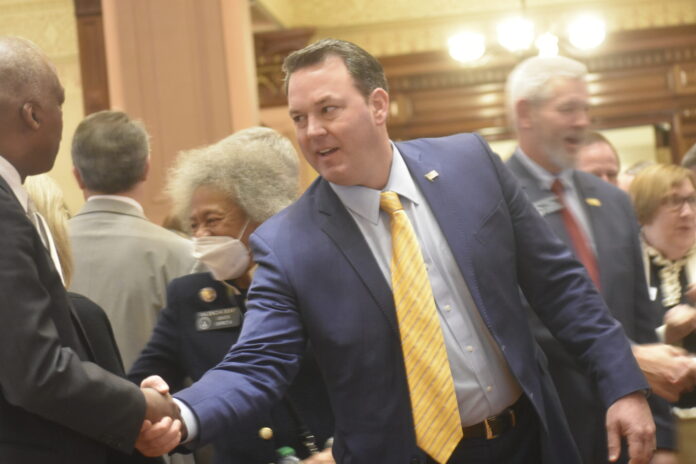
(GA Recorder) — Georgians under 16 could soon need to get permission from their parents before they can log on to social media if a bill backed by Lt. Gov. Burt Jones becomes law.
Senate Bill 351, sponsored by Dallas Republican Sen. Jason Anavitarte, would require social media networks to “make commercially reasonable efforts” to determine users’ ages and treat those under 16 as minor users.
Social media companies would need to get parental consent before opening an account for a minor user. The companies would be restricted in collecting information from and advertising to minor account holders.
The bill updates rules about bullying to include cyberbullying and institutes requirements for local districts. If it becomes law, districts will be required to adopt a social media policy banning students from accessing social media on school-provided devices, and the state Department of Education will be mandated to develop a program promoting safe and responsible internet use and update it as technology develops.
“Since we announced this initiative in August, Senator Anavitarte and I have worked with industry and education leaders, online safety advocates, and legal experts to craft this legislation, and we will continue working with them as this process moves forward,” Jones said. “We believe SB 351 is an important step forward in protecting Georgia’s children and giving them the tools they need to be safe in their use of social media and other technologies.”
According to the Mayo Clinic, teens can benefit from social media by connecting with friends across geographic boundaries, learning about new places and topics or learning new ways to express themselves, but social media can also harm teens, the researchers found, with some studies linking heavy social media use with mental health problems. Harmful effects can include loss of sleep, exposure to bullying and peer pressure, as well as negative feelings from unrealistic views of other people’s lives.
“As two dads, we believe we must keep our kids safe through the ever-growing threat of social media on minors,” said Anavitarte. “The threats are not just locally in our communities, but in the global stage as we have seen more recently. No kid should have to worry and stress about bullying and online threats. We will continue to promote efforts to have strong families against the poison eroding America.”
States, including Arkansas and Utah, have passed similar laws. Social media companies say they take pains to make their apps safe for young users but would rather comply with one set of national regulations than many.
“Parents want to be involved in their teen’s online lives, and they need simple ways to oversee the many apps their teens use,” said Rachel Holland, a spokesperson for Meta, which operates platforms like Facebook, Instagram and WhatsApp. “However, U.S. states are passing a patchwork of laws with different requirements to use certain apps. That’s why we support federal legislation that requires app stores to get parents’ approval whenever their teens under 16 download apps.”
“We’re grateful for our partnership with Georgia policymakers and look forward to continuing to work closely with them to safeguard teens and empower parents,” she added.
SB 351 has been assigned to the Senate Committee on Education and Youth.







